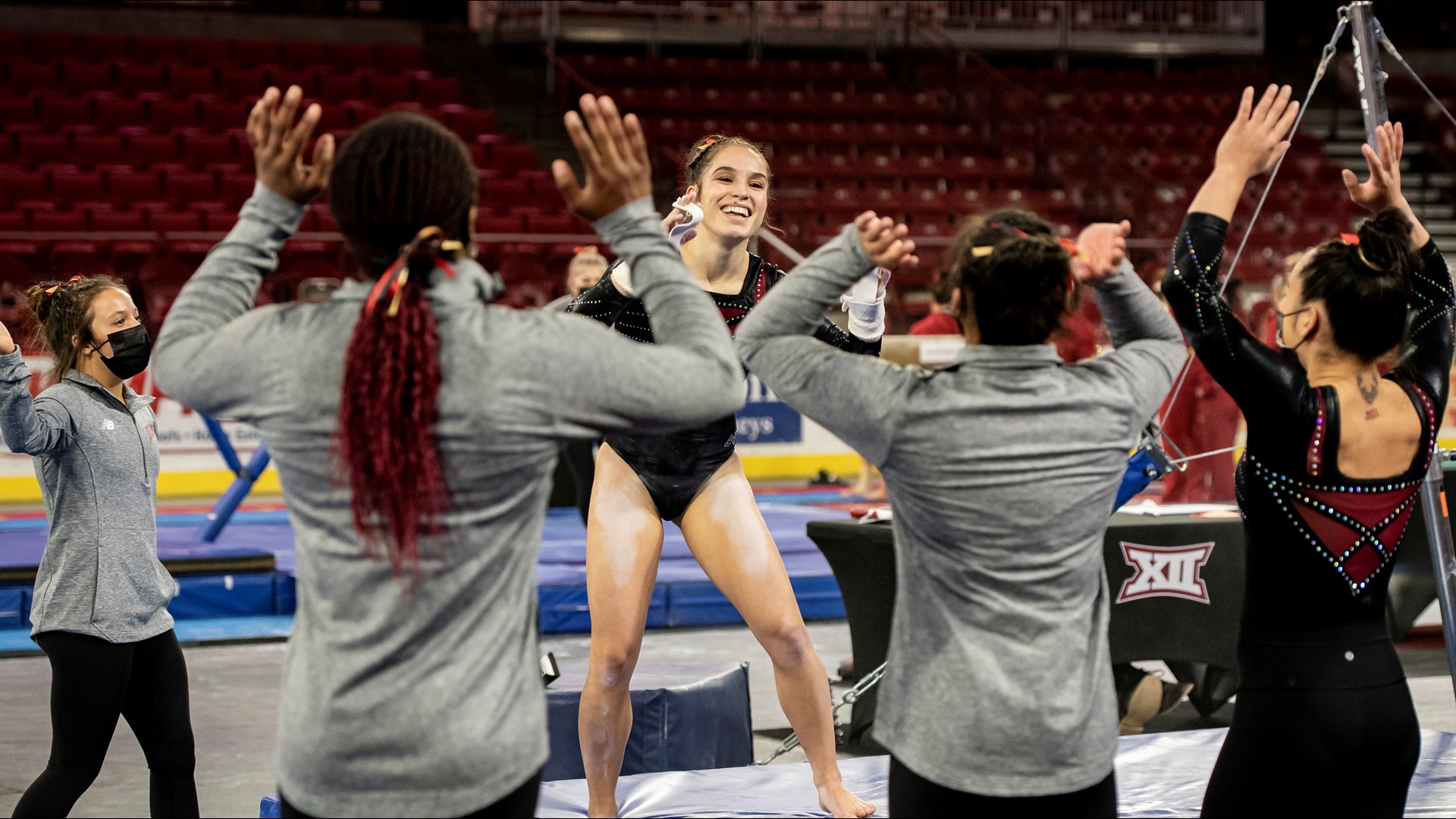DENVER — The whole world was put on notice this past summer that gymnasts and all athletes deserve to put their health first, when Simone Biles took a step back from competing in team competition and four individual competitions in Tokyo.
"Everyone in the gymnastics community has so much compassion for what she went through in that time and the way that she handled it with so much grace was so inspiring," Denver graduate All-Around student athlete Mia Sundstrom said. "I would absolutely do the same if I were in a position where my mental health and wellness needed to be addressed before my athletic performance."
And at the University of Denver, mental health has always been the gold standard.
"We're in such a loving and supportive environment at the University of Denver that I would feel comfortable doing what she did," Sundstrom said. "She set such an incredible precedent doing that."
Sundstrom's senior teammate Alexandria Ruiz has earned multiple all-around titles and Second-Team All-American honors in her career at DU, but Ruiz still knows when it's time to step away from the mat and take care of herself.
"We're all human. We're more than just athletes and I think it's really important to recognize that and know that and understand that and put ourselves first before our sport," she said.
The reigning Big 12 Champions all put themselves before their sport on a regular basis, visiting with a clinical and sports psychologist in team sessions.
"It was very apparent to me that the University of Denver's Gymnastics team cares deeply about their athletes as people from a holistic approach," Dr. Megan LaVoy said about joining the team staff three seasons ago. "The team sessions, I would almost describe as a proactive approach. We're addressing and teaching them skills they can utilize and implement in the gym before an issue arises."
Dr. LaVoy also offers individual sessions to address specific issues on an as-needed basis. While she believes all athletes and people should visit with a mental health professional, she said it's especially critical for gymnasts.
"While this is a team sport, a lot of times while you are out there, you are individually performing and competing, which could look and feel like a lot of pressure," she said.
Sundstrom agrees, and adds that the intense skills needed for this sport can create their own pressures.
"Gymnastics is a sport where you're doing a lot of big skills and hard things. That's a big-risk, big-reward," she said. "So you have to be really dialed in and focused on what you're doing and if there are any outside distractions and you're not quite mentally sharp enough for that moment, it can get dangerous."
As important as it is to land a dismount properly, Dr. LaVoy agrees it's equally as important to check in with yourself and teammates.
"Yes, gymnastics is important and how they're performing in the gym is important, and if we're not tending to them as people and how they're doing as a whole, we're really missing a huge avenue to helping them and giving them the best chance for a quality of life and also success in the gym," she said.
In addition to their work in the gym and with their team sessions, the Pioneers are taking extra steps to ensure each student on campus is secure with their pursuit of good mental health.
The Student Athlete Advisory Committee (SAAC) created a Green Bandana project to reduce stigma, spread awareness, and increase accesses to resources for mental health. Students have the opportunity to go through a mental health training and put a green bandana on their backpack to indicate that they support mental health, are a safe person to approach with mental health concerns, and can direct students to the campus and local mental health resources.
"It's super powerful because it's a sign of quiet solidarity and support of mental health. It means a lot when you're walking around campus and you see a green bandana to just know that we're all here for each other and we all support the same cause and we're all here for each other," Sundstrom said.
As a member of student leadership, Sundstrom is proud to wear her bandana on her backpack and help any students on campus who may need a helping hand, as well as lend an ear to any teammate on the gymnastics mat.
"It takes a lot of bravery and courage to reach out for resources that offer support and get support and it's absolutely important," she said. "It's important in the sport of gymnastics and it's important in many other arenas of life, as well."

